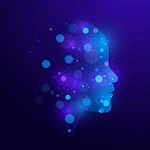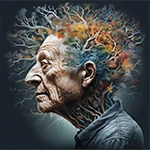AI can help, but it can’t completely replace a human psychologist
AI can help, but cannot completely replace a human psychologist. AI can simulate empathy, but it cannot experience it. People feel the difference deeply.
In the digital age, technology has penetrated almost every aspect of our lives, and AI is no exception. It is fascinating to see how artificial intelligence can provide emotional support, guide us in times of confusion, and even help people better understand the mechanisms of their own mind. For many, an AI assistant can be the first step towards exploring their own emotions or managing everyday stress, offering an accessible and fast experience.

However, the human connection remains fundamental to the psychological process. Even though AI can simulate empathy and answer our questions with patience and clarity, there is a dimension of emotional experience that requires the presence and understanding of a real psychologist. The emotions, subtleties, and deep connection we feel with a human cannot be fully reproduced by technology, and this difference is often felt intuitively.
Availability and accessibility
One of the greatest advantages of AI is its constant availability. AI-based mental health applications can provide emotional support at any time of the day or night, without the need for appointments or waiting. This rapid access can be especially useful in times of crisis or when someone is in a geographical area where access to professionals is limited.
For example, the study by Olawade et al. in 2024 showed that AI can provide personalized and effective interventions in mental health management, demonstrating its potential to support users in need of immediate assistance.
Clarity and Structure
AI excels at providing clear and structured information about psychological techniques, such as cognitive behavioral therapy (CBT), breathing exercises, and stress management strategies. This information can be presented in a way that is easy to understand and apply, helping users better understand their own emotions and behaviors.
A notable example is TheraGen, an AI chatbot that uses the LLaMA 2 7B model to provide personalized and empathetic mental care. User ratings have shown high levels of satisfaction and improvements in mental well-being, indicating the effectiveness of AI in providing structured and accessible support
Empathy simulation and its limits
AI can simulate empathy through warm and encouraging responses, but this empathy is essentially a simulation. Studies have shown that while AI can generate responses that appear empathetic, people perceive a subtle difference between genuine human empathy and that generated by AI.
A study by Shen et al. in 2024 found that participants empathized significantly more with stories created by humans than with those generated by AI, even when they were unaware of the actual author of the story. This difference suggests that while AI can mimic empathy, it cannot replicate its complexity and depth.
The Role of the Human Relationship in Therapy
The therapeutic relationship is an essential element in the healing process. A human psychologist can understand not only words, but also the patient’s nonverbal language, tone of voice, and emotional context. This deep understanding allows the therapist to respond in ways that are not only technically correct, but also sensitive and tailored to the patient’s individual needs.
A study by Kuhail et al. in 2024 compared human and AI-assisted therapies and found that while AI-generated transcripts were rated as higher quality by therapists, direct human interactions were considered more effective in addressing patients’ emotional needs.
Complementary Support and Self-Reflection
AI can serve as a complementary tool in the therapeutic process, providing support between sessions with a human therapist. AI-powered mental health apps can help users monitor their emotional state, apply self-help techniques, and reflect on their progress.
However, it is important for users to be aware of the limitations of AI and not rely solely on these tools. AI should be used as a supplement to human therapy, not as a replacement.
Human connection remains essential for deep and authentic transformation of emotional experience
Artificial intelligence offers valuable opportunities in supporting mental health by providing quick access to information and self-help techniques. However, the human relationship remains an essential element in the therapeutic process. AI can support, guide, and educate, but it cannot replace the authentic human connection, empathy, and deep understanding that a human psychologist can provide.
By integrating AI as a complementary tool within a human-based mental health system, we can create an environment where technology and human empathy work together to support the emotional well-being of individuals.
















